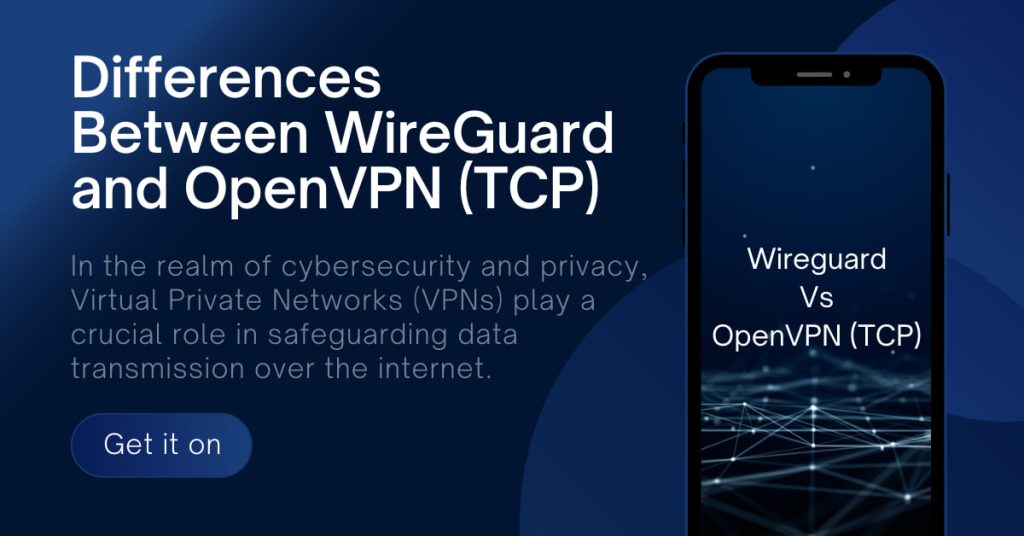In the realm of cybersecurity and privacy, Virtual Private Networks (VPNs) play a crucial role in safeguarding data transmission over the internet. Among the myriad of VPN protocols available, WireGuard and OpenVPN (TCP) stand out as popular choices, each with its own set of features and advantages. In this blog, we’ll delve into the differences between WireGuard and OpenVPN (TCP), helping you understand which might be the better option for your specific needs.
Introduction to WireGuard and OpenVPN (TCP)
- WireGuard: WireGuard is a relatively new VPN protocol renowned for its simplicity, efficiency, and modern cryptographic design. Developed by Jason A. Donenfeld, WireGuard aims to provide a faster, leaner, and more secure alternative to traditional VPN protocols. It boasts a streamlined codebase, making it easier to audit and maintain.
- OpenVPN (TCP): OpenVPN, on the other hand, is a well-established open-source VPN protocol that has been around for over two decades. It is known for its robustness, versatility, and wide platform support. OpenVPN offers both TCP (Transmission Control Protocol) and UDP (User Datagram Protocol) modes, providing users with flexibility in configuring their VPN connections.
Performance and Efficiency
- WireGuard: WireGuard is lauded for its exceptional performance and efficiency. By employing modern cryptographic techniques and a leaner codebase, WireGuard minimizes latency and overhead, resulting in faster connection speeds and lower resource utilization. Its simplicity also contributes to easier deployment and configuration.
- OpenVPN (TCP): While OpenVPN is known for its reliability and versatility, its TCP mode tends to be slower and less efficient compared to WireGuard. TCP is a connection-oriented protocol that prioritizes data reliability over speed, making it susceptible to increased latency and potential performance bottlenecks, especially over long distances or unstable networks.
Security and Cryptography
- WireGuard: WireGuard boasts state-of-the-art cryptographic primitives, including the Noise protocol framework, Curve25519 elliptic curve cryptography, and ChaCha20 for symmetric encryption. Its design emphasizes simplicity and transparency, making it easier to audit for potential vulnerabilities. Additionally, WireGuard implements a zero-trust model, meaning it assumes that network infrastructure is untrusted by default.
- OpenVPN (TCP): OpenVPN offers robust security features, including support for various cryptographic algorithms and TLS (Transport Layer Security) encryption. However, its complexity and extensive feature set may introduce potential attack vectors and vulnerabilities if not configured properly. Additionally, TCP’s reliance on a single connection for data transmission may make it more susceptible to certain types of network attacks, such as TCP hijacking.
Compatibility and Support
- WireGuard: Despite being relatively new, WireGuard has gained significant traction and is supported on various operating systems, including Linux, Windows, macOS, Android, and iOS. However, broader adoption and integration into mainstream networking solutions are still ongoing.
- OpenVPN (TCP): OpenVPN enjoys widespread compatibility and support across a wide range of platforms and devices. Its maturity and extensive documentation make it a preferred choice for organizations and individuals seeking compatibility with legacy systems or specific configurations.
In conclusion, both WireGuard and OpenVPN (TCP) are powerful VPN protocols with distinct characteristics and use cases. WireGuard excels in terms of performance, efficiency, and simplicity, making it an excellent choice for users prioritizing speed and modern cryptographic design. On the other hand, OpenVPN (TCP) offers reliability, versatility, and broad compatibility, making it a preferred option for users requiring extensive platform support and legacy system compatibility. Ultimately, the choice between WireGuard and OpenVPN (TCP) depends on your specific requirements, preferences, and priorities regarding performance, security, and compatibility.






